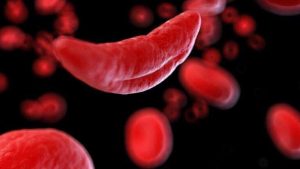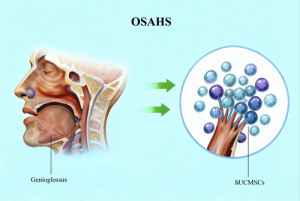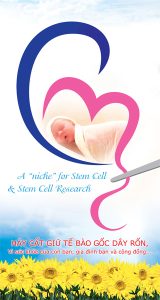Pubmed Central, May 15, 2025
A double-blind randomized clinical trial conducted by Zhaojuan Hou and colleagues at Xiangya Hospital, Central South University, evaluated the efficacy and safety of transplanting human umbilical cord-derived mesenchymal stromal cells (hUC-MSCs) loaded onto a collagen scaffold (CS) for the treatment of refractory thin endometrium (RTE) caused by Asherman syndrome.

Background and Research Objectives
Thin endometrium (<7 mm) presents a major challenge in assisted reproductive technology, especially when it is unresponsive to standard treatments such as hysteroscopic surgery and hormonal therapy. This study aimed to assess whether a novel therapy combining hUC-MSCs with a collagen scaffold, implanted into the uterus after performing endometrial “scratching”, could improve the cumulative live birth rate (cLBR) in infertile women diagnosed with RTE.
Study Design and Methods
- Design: A single-center, double-blind, randomized controlled trial.
- Participants: 25 infertile women, aged 20–39, with refractory thin endometrium after at least four unsuccessful treatments.
- Intervention: Following hysteroscopic evaluation and endometrial scratching, patients received either hUC-MSCs loaded onto a collagen scaffold or saline-loaded CS (control group).
- Assessments: The primary outcome was cumulative live birth rate (cLBR); secondary outcomes included clinical pregnancy rate, endometrial thickness, and uterine fluid RNA-seq analysis on the embryo transfer day.
Key Results
- Cumulative Live Birth Rate (cLBR): The hUC-MSC/CS group achieved a cLBR of 27.3% (3/11) compared to 7.7% (1/13) in the control group (RR = 3.55; P = 0.30).
- Clinical Pregnancy Rate: 45.5% in the hUC-MSC/CS group vs. 7.7% in the control group (RR = 5.91; P = 0.06).
- Safety: Two patients in the hUC-MSC/CS group developed mild rashes (urticaria); no serious adverse events were reported during one year of follow-up.
- Mechanism of Action: RNA-seq analysis revealed enhanced T cell activation and upregulation of genes involved in cytokine-receptor interactions, suggesting an immunomodulatory role of hUC-MSCs in improving endometrial receptivity.
Conclusion and Clinical Significance
Although the results did not reach statistical significance due to the small sample size, the study showed a promising trend indicating that hUC-MSC/CS therapy may improve live birth outcomes in patients with RTE. This approach has potential to become a novel treatment strategy for cases of refractory thin endometrium, especially when conventional therapies fail.
References
The article was translated and summarized from the research paper: Hou, Z., Yang, T., Xu, D., Fu, J., Tang, H., Zhao, J., Zhang, Q., Chen, J., Qin, Q., Li, W., Chen, H., Li, H., Guo, L., Xu, B., & Li, Y. (2025). hUC-MSCs loaded collagen scaffold for refractory thin endometrium caused by Asherman syndrome: a double-blind randomized controlled trial. Stem cells translational medicine, 14(4), szaf011. https://doi.org/10.1093/stcltm/szaf011
Source: Pubmed Central
Link: https://pmc.ncbi.nlm.nih.gov/articles/PMC12079654/








